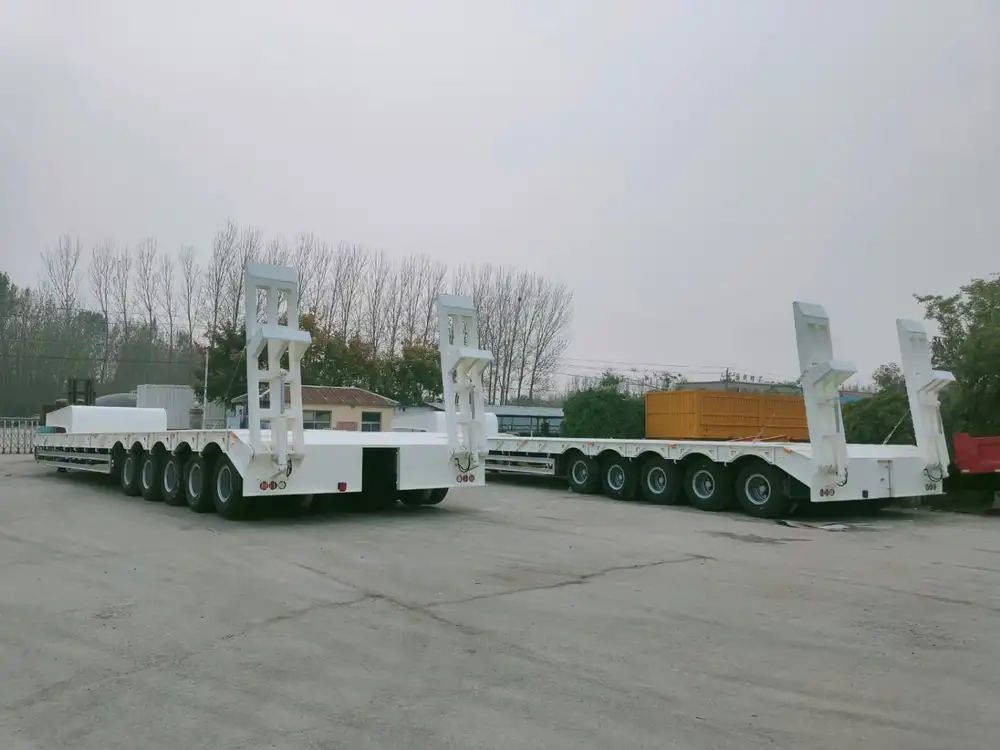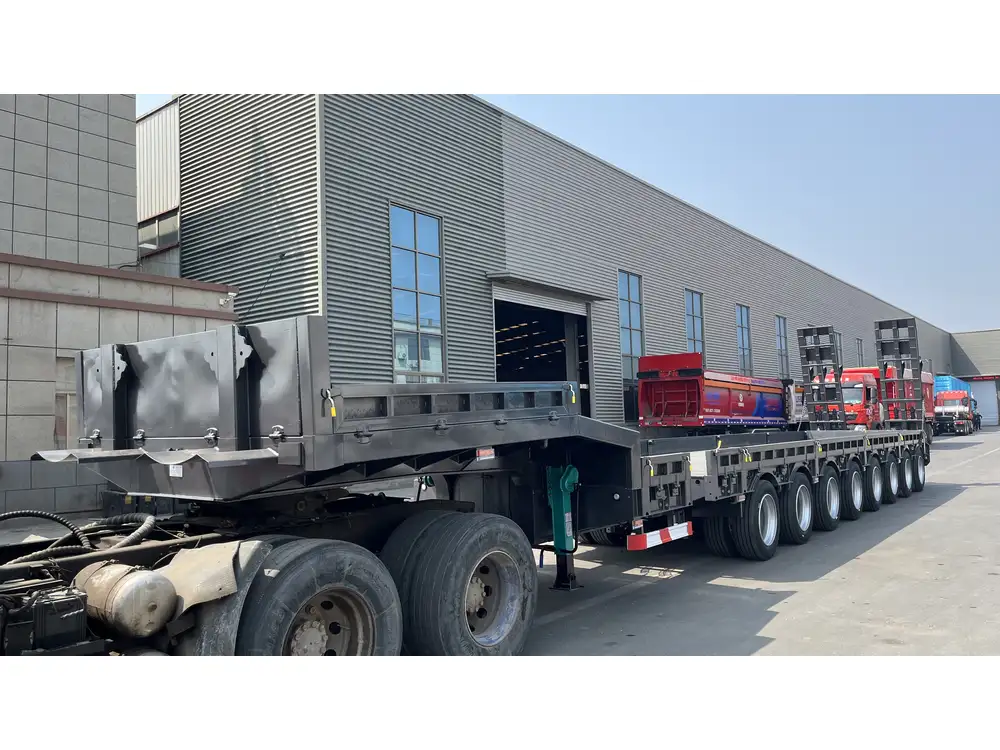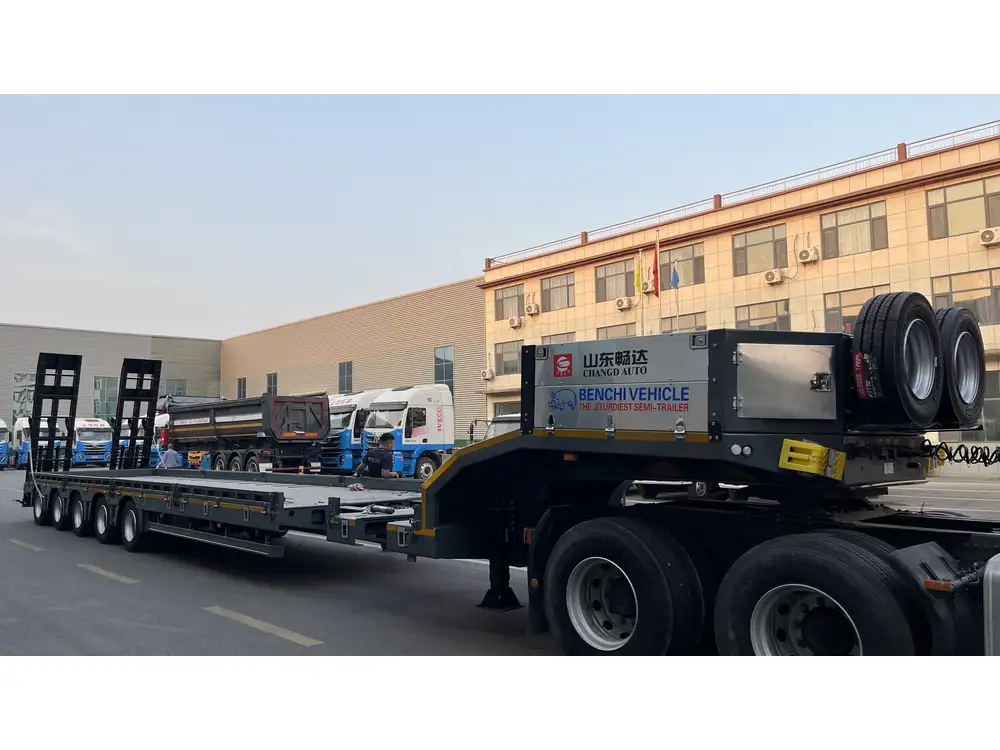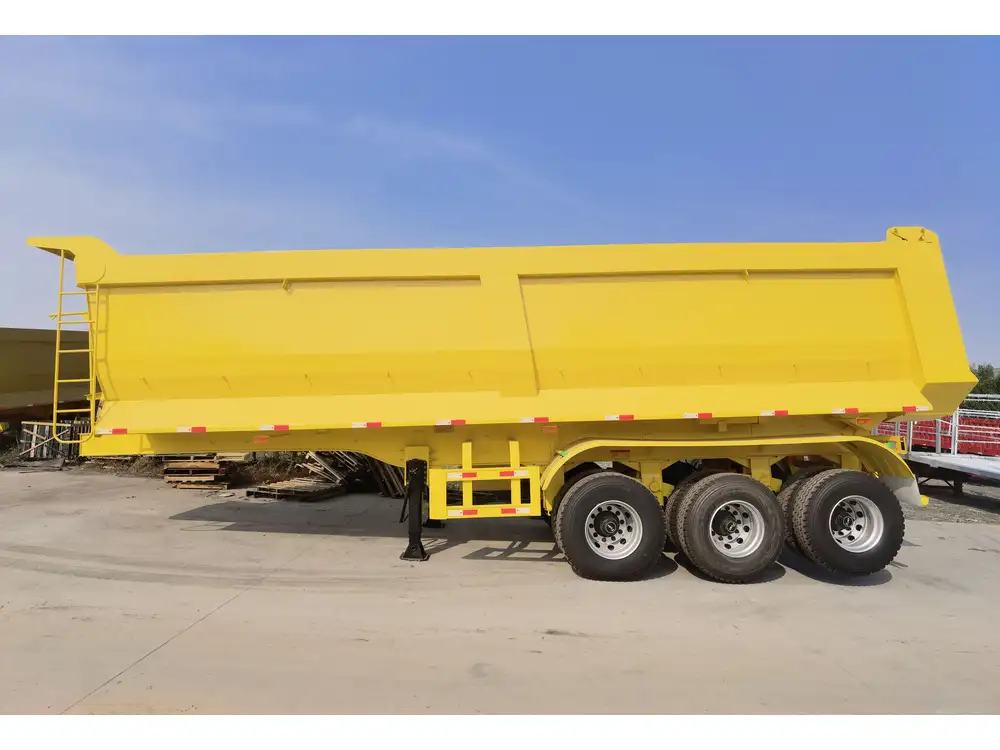Replacing a semi-trailer door can seem like an overwhelming task, but with the right approach and tools, it can be accomplished efficiently and effectively. This guide provides a detailed overview of the process, breaking it down into manageable steps for both novice and experienced technicians. Ensuring your semi-trailer is in top condition is essential for seamless operations, and a well-installed door is crucial for securing your cargo and maintaining road safety.
Understanding the Components of a Semi-Trailer Door
Before delving into the replacement process, it’s important to familiarize yourself with the various components that make up a semi-trailer door. This knowledge not only helps during the replacement but also aids in troubleshooting any future issues.
Key Components:
| Component | Function |
|---|---|
| Door Panel | The main structure that opens and closes to allow access. |
| Hinges | Mechanically attach the door to the trailer frame, allowing it to pivot. |
| Locks | Secure the door shut, preventing unauthorized access. |
| Gaskets | Provide a seal to protect the interior from dust and moisture. |
| Latch Mechanism | Keeps the door securely closed when locked. |

Tools Required for Door Replacement
Having the right tools at your disposal will make the replacement process smoother and more efficient. Ensure you gather the following tools:
- Mechanics Tool Set: Including wrenches and sockets.
- Screwdrivers: Both Phillips and flathead.
- Pry Bar: For leverage, if needed.
- Drill & Bits: For drilling any new holes.
- Measuring Tape: For accurate measurements.
- Safety Gear: Gloves, goggles, and steel-toed boots.
Step-by-Step Process for Replacing a Semi-Trailer Door
Now that you’re equipped with knowledge and tools, it’s time to get started. This process is broken down into key stages to simplify the procedure.
1. Preparation and Safety Precautions
Before starting any work, safety must be your top priority. Here are some steps to ensure a safe working environment:
- Park the trailer on a flat surface and engage the parking brake.
- Use wheel chocks to prevent any movement of the trailer.
- Wear appropriate safety gear to protect yourself from injury.

2. Assessing the Existing Door
Understanding the current state of the door can help pinpoint any additional issues. Check for:
- Damage to the door panel (dents, rust, or corrosion).
- The condition of hinges and locks.
- Any misalignment or sagging.
3. Removing the Old Door
a. Detaching the Hinges
Locate the hinges that attach the door to the frame. Use your wrench or socket set to remove the bolts securing the hinges. This may require:
- Support: Have a second person assist in holding the door while you remove it to prevent it from falling.
- Pry Bar: If the door has been on for an extended period, it may require some prying to loosen.

b. Taking Off the Locks and Latch Mechanism
Once the hinges are detached:
- Remove any bolts or screws that secure the locks and latch.
- Carefully extract the latch mechanism, taking note of how it is connected for reassembly.
c. Removing the Door
With all components detached, you can carefully lift the door off the frame. Set it aside in a safe area.
4. Preparing the New Door for Installation

a. Selecting the Right Replacement Door
Ensure the new door matches the specifications of the old one in dimensions and design. Consult with a manufacturer or distributor for the right size.
b. Adjusting the New Door
- Check Fit: Test the new door against the opening to confirm it fits correctly.
- Drill Holes (if necessary): If the new door has different hinge or lock placements, drill new holes in alignment with your trailer’s frame.
5. Installing the New Door

a. Securing the Hinges
Align the new door with the hinges on the trailer frame. Securely bolt the hinges in place, employing a torque wrench if needed, to ensure they are tight without over tightening.
b. Reattaching the Locks and Latch Mechanism
Follow the notes you made during the removal process to attach the locks and latch mechanism so that it functions correctly. Double-check the functionality before moving on.
6. Testing the Door Functionality

a. Opening and Closing the Door
Test the door several times to ensure it operates smoothly. Pay attention for any sticking points, misalignments, or unusual noises.
b. Securing the Door
Ensure that the locks are functioning properly. Perform a comprehensive check to confirm that the door seals tightly with no gaps around the edges.
7. Final Inspection and Clean-Up
Lastly, conduct a thorough inspection of the newly installed door and its components. Ensure everything is securely fastened and functioning as expected.
- Clean the Area: Dispose of any debris and ensure the workspace is clear to avoid injuries.
- Documentation: Keep records of the replacement for future reference or maintenance logs.

Troubleshooting Common Issues After Replacement
Even after a careful installation, issues can arise. Here are some common problems and how to resolve them:
Common Problems and Solutions
| Issue | Description | Solution |
|---|---|---|
| Misalignment | Door does not align properly with the frame. | Check and adjust hinges; ensure door is level. |
| Sticking or Jamming | Door does not open or close smoothly. | Lubricate hinges and check for obstructions. |
| Gaps in Sealing | Unwanted space around the door. | Adjust the latch mechanism or replace gaskets if worn. |
| Locking Mechanism Failure | The lock does not engage or disengage properly. | Inspect and tighten connections; replace faulty components. |
Maintenance Tips for Semi-Trailer Doors
To extend the life of your new semi-trailer door, regular maintenance is key. Here are some tips:
- Regular Inspections: Check hinges, locks, and seals monthly for wear.
- Lubrication: Regularly apply lubricant to hinges and moving parts to maintain functionality.
- Cleaning: Keep the door and frame clean from dirt and debris to prevent rusting and mechanical failure.
- Weatherproofing: Replace gaskets as needed and periodically check for water leaks, especially after heavy rainfall.

Conclusion
By following the comprehensive steps outlined in this guide, you can efficiently replace a semi-trailer door with confidence. Remember that proper preparation, safety precautions, and ongoing maintenance are crucial to ensuring your trailer continues to operate effectively. For further assistance or specialized equipment, don’t hesitate to consult with industry professionals or your semi-trailer manufacturer. With the right knowledge and tools, you’re well-equipped to tackle any door replacement tasks.



